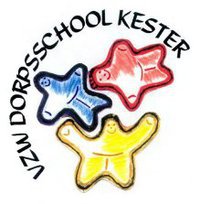Sps Agreement Cases
In 2003, the United States challenged a number of EU legislation restricting the importation of genetically modified organisms (GMOs) in a dispute known as biotech[11] on the grounds that they were “unjustifiable” and illegal under the SPS agreement. In May 2006, the WTO`s dispute resolution body issued a complex ruling that challenged aspects of the EU GMO regulation, but rejected many of the US claims. A summary of the decision can be provided here. Among the WTO`s most important cases in the implementation of SPS measures are: while Article 1.5 TBT excludes the inclusion of SPS measures in its adr, the ec biotech group has acknowledged that situations could occur in which a measure is only a partial SPS measure and, in these cases, , the SPS part of the measure is taken into account as part of the SPS agreement. [12] Where a measure under Article 2.4 of the SPS Convention is the case of the SPS, the measure is considered to fall within the scope of the GATT, Article XX, point b). The SPS agreement is closely linked to the Agreement on Technical Barriers to Trade, which was signed the same year and has similar objectives. The OBT is the result of the WTO round of negotiations in Tokyo and was negotiated to ensure non-discrimination in the adoption and implementation of technical rules and standards. [3] A dispute arises when a member government believes that another member government is violating a WTO agreement. The complaining member must submit a “request for consultation” defining the agreements he considers to be in the state. A dispute can and will often be placed under more than one agreement.
The list below outlines the agreements mentioned in the consultation request. Under the SPS agreement, the WTO sets limits on Member States` policy on food security (bacterial contaminants, pesticides, inspection and labelling) and animal and plant health (phyto-hygiene) with regard to pests and imported diseases. There are three standards bodies that set standards on which WTO members should base their SPS methods. According to Article 3, they are the Codex Alimentarius Commission (Codex), the World Organisation for Animal Health (OIE) and the secretariat of the International Convention on the Protection of Plants (IPPC). Click on an agreement in the list below to see the relevant disputes. The agreement on the application of health and plant health measures, also known as the SPS agreement or simply SPS, is an international treaty of the World Trade Organization (WTO). It was negotiated during the Uruguay Round of the General Agreement on Tariffs and Trade (GATT) and came into force with the creation of the WTO in early 1995. [1] Overall, the health and plant health measures (“SPS”) covered by the agreement are those aimed at protecting life, the animal or the plant or human or plant health from certain risks. [2] As GATT focused on tariff reductions, the framework that preceded the SPS agreement was not sufficiently equipped to deal with the problems of non-tariff barriers (NB) and the need for an independent agreement to address it became critical. [4] The SPS agreement is an ambitious attempt to address NB due to cross-border differences in technical standards, without reducing the prerogative of governments to implement protection measures against diseases and pests. [5] This article proposes that the SDC apply a more suspensive audit standard when assessing: (1) the level of risk that a state is willing to tolerate; (2) scientific data; and (3) the relationship between the disputed measure and the “risk assessment” required by the SPS agreement.



